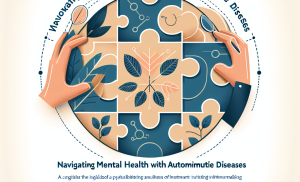What Are The Most Common Causes Of Stress In Today’s Society?
In today’s fast-paced society, it’s no surprise that stress has become an all too familiar companion in our lives. From the constant pressure to meet deadlines at work to the struggle of maintaining a work-life balance, there are several factors that contribute to our everyday stress. Additionally, social expectations, financial burdens, and the ever-increasing use of technology also play a significant role in contributing to our stress levels. As we navigate through the ups and downs of modern life, it’s crucial to understand the common causes of stress and find effective ways to manage and alleviate it.
Work-related stress
Work-related stress is a leading contributor to the overall stress levels experienced by individuals in today’s society. Long working hours, high workloads, job insecurity, lack of control over work, and unrealistic deadlines are some of the key factors that contribute to this type of stress.
Long working hours: In today’s fast-paced world, many individuals find themselves putting in long hours at work in order to meet deadlines or fulfill job responsibilities. This can lead to exhaustion, burnout, and a lack of time for relaxation and self-care.
High workload: With increasing demands and expectations in the workplace, individuals often find themselves with an overwhelming amount of work to complete within a limited timeframe. This can create a sense of pressure and anxiety, as the workload becomes difficult to manage efficiently.
Job insecurity: The fear of losing one’s job or facing uncertainty about the future can significantly contribute to stress levels. Constant worry about job stability can lead to anxiety and a sense of helplessness, as individuals feel the need to constantly prove their worth and meet expectations.
Lack of control over work: Feeling powerless or lacking control over one’s work environment can be a major source of stress. When individuals are unable to make decisions or have a say in how tasks are carried out, it can lead to frustration, decreased job satisfaction, and heightened stress levels.
Unrealistic deadlines: Having to meet unrealistic deadlines can add immense pressure and stress to individuals. The constant need to rush through tasks or sacrifice quality in order to meet these deadlines can have detrimental effects on both mental and physical well-being.
Financial stress
Financial stress is another significant cause of stress in today’s society, as individuals face various challenges related to their finances. Mounting debt, unemployment or underemployment, insufficient savings, higher cost of living, and financial responsibilities all contribute to this type of stress.
Mounting debt: Many individuals find themselves burdened with significant amounts of debt, whether it be from student loans, credit card debt, or mortgages. The constant pressure of having to meet financial obligations and the worry of accumulating interest can lead to stress and anxiety.
Unemployment or underemployment: The inability to find stable employment or being stuck in a job that does not provide financial security can be a major stressor. The fear of not being able to cover basic expenses or support oneself and one’s family can create a constant state of anxiety and financial stress.
Insufficient savings: Not having adequate savings or a financial safety net can contribute to stress levels, as individuals may feel unprepared for unexpected expenses or emergencies. The uncertainty of not having a financial cushion can lead to constant worry and anxiety.
Higher cost of living: Rising expenses, such as housing, healthcare, and education, can put a strain on individuals’ finances and contribute to financial stress. Trying to keep up with rising costs while maintaining a decent standard of living can be challenging and overwhelming.
Financial responsibilities: The responsibility of supporting a family, paying bills, and meeting financial obligations can be overwhelming and lead to elevated stress levels. The constant pressure of meeting financial responsibilities and ensuring the well-being of loved ones can create significant stress and anxiety.

Relationship problems
Relationship problems, whether it be with a spouse, family members, or lack of social support, can also contribute significantly to stress levels in today’s society.
Marital conflicts: Conflicts within a marriage or long-term partnership can lead to stress and tension. Communication breakdowns, differences in values or priorities, and unresolved issues can create emotional strain and negatively impact overall well-being.
Divorce or separation: Going through a divorce or separation can be an incredibly stressful and emotionally draining experience. The process of separating assets, determining custody, and dealing with the emotional fallout can contribute to high stress levels.
Family disputes: Disagreements or conflicts within families can cause significant stress. Whether it be over financial matters, parenting decisions, or differing opinions, ongoing family disputes can create tension and frustration.
Lack of social support: Feeling isolated or lacking a support system can contribute to stress levels. Not having people to turn to during times of need or difficulty can increase feelings of loneliness, helplessness, and stress.
Loneliness and isolation: In today’s society, with increased reliance on technology and decreased face-to-face interactions, feelings of loneliness and isolation are becoming increasingly prevalent. The lack of meaningful connections and social support can significantly impact an individual’s well-being and contribute to stress.
Health-related issues
Health-related issues are a common cause of stress in today’s society, as individuals face various challenges related to their physical and mental well-being.
Chronic illnesses: Living with chronic illnesses such as diabetes, heart disease, or autoimmune disorders can be incredibly challenging and stressful. Managing symptoms, coping with medications, and facing the uncertainty of future health outcomes can significantly impact an individual’s stress levels.
Injuries or accidents: Experiencing injuries or accidents, whether minor or major, can be traumatic and lead to high levels of stress. Dealing with pain, recovery, and potential long-term impacts can create emotional strain and anxiety.
Poor lifestyle choices: Unhealthy lifestyle choices, such as a sedentary lifestyle, poor diet, or excessive alcohol or drug use, can contribute to stress and negatively impact overall well-being. The knowledge of engaging in unhealthy behaviors can create feelings of guilt and anxiety.
Sleep disorders: Struggling with sleep disorders, such as insomnia or sleep apnea, can significantly impact an individual’s well-being and contribute to stress levels. The constant fatigue, lack of restful sleep, and subsequent impact on daily functioning can create a vicious cycle of stress and sleep disruption.
Concerns about one’s own health: Worries about one’s own health or the potential for developing health issues can create significant stress. The fear of illness or unknown health outcomes can lead to heightened anxiety and a constant state of worry.

Technology overload
The increasing reliance on technology in today’s society has led to a new form of stress: technology overload. Constant connectivity, information overload, social media pressure, fear of missing out (FOMO), and digital dependency all contribute to this type of stress.
Constant connectivity: The expectation of always being connected and available through technology, such as smartphones and email, can lead to feelings of being constantly “on” and unable to fully disconnect. This can create a constant state of stress and a blurred line between work and personal life.
Information overload: With the vast amount of information available at our fingertips, individuals often find themselves overwhelmed and stressed by the constant influx of news, emails, and notifications. Sorting through and processing this information can be mentally exhausting and contribute to stress levels.
Social media pressure: The rise of social media has brought about a new set of stressors, as individuals feel the pressure to live up to the idealized versions of life presented on platforms such as Instagram and Facebook. Comparing oneself to others and feeling the need to constantly present a curated version of life can contribute to stress and feelings of inadequacy.
Fear of missing out (FOMO): The fear of missing out on experiences or events due to not being connected or actively involved in social media can create stress and anxiety. Constantly feeling the need to be “in the loop” and stay connected can take a toll on an individual’s mental well-being.
Digital dependency: Relying heavily on technology for various aspects of life, such as work, communication, and entertainment, can create dependence and a sense of hinging on digital devices. The fear of not having access to technology or experiencing technical difficulties can lead to stress and a constant need for connectivity.
Educational stress
Educational stress is a significant source of stress in today’s society, particularly for students and young adults. Academic pressure, exams and deadlines, competition, bullying or harassment, and uncertainty about the future all contribute to this type of stress.
Academic pressure: The pressure to perform well academically, whether it be from parents, teachers, or personal expectations, can be overwhelming and lead to high stress levels. The constant need to meet academic standards and achieve good grades can create anxiety and a fear of failure.
Exams and deadlines: The looming deadlines and pressure to perform well on exams can contribute to significant stress levels among students. The need to study, revise, and perform under pressure can create a constant state of anxiety and heightened stress.
Competition: In today’s competitive educational landscape, the pressure to stand out and excel can be incredibly stressful. The constant comparison to peers and the fear of not measuring up can create a sense of pressure and anxiety.
Bullying or harassment: The experience of bullying or harassment within educational settings can have detrimental effects on an individual’s well-being and contribute to high stress levels. The fear of being targeted or constantly navigating hostile environments can create significant stress and emotional distress.
Uncertainty about the future: The uncertainty about future educational or career paths can create stress and anxiety. The pressure to make important life decisions, such as choosing a major or career path, can contribute to feelings of doubt and anxiety about the future.

Social and societal issues
Social and societal issues also play a significant role in contributing to stress in today’s society. Discrimination and prejudice, violence and crime, political unrest, environmental concerns, and social inequality are all factors that contribute to this type of stress.
Discrimination and prejudice: Experiencing discrimination or prejudice based on factors such as race, gender, sexual orientation, or socioeconomic status can significantly impact an individual’s well-being and contribute to stress levels. The constant need to navigate discriminatory environments can create tension, anxiety, and a sense of injustice.
Violence and crime: Living in environments where violence and crime are prevalent can be incredibly stressful and traumatic. The constant fear for one’s safety and the well-being of loved ones can lead to heightened stress levels and a constant state of alertness.
Political unrest: Political turmoil, instability, or ongoing conflicts can create a sense of unease and stress within a society. The constant exposure to news and events related to political unrest can contribute to stress levels and a feeling of powerlessness.
Environmental concerns: The increasing awareness and concern about environmental issues, such as climate change and pollution, can create significant stress. The constant worry about the state of the planet and the future impact on ecosystems can contribute to heightened anxiety and stress levels.
Social inequality: The existence of social inequality, whether it be related to income, education, or access to resources, can lead to stress and feelings of injustice. The constant awareness of disparities and the struggle to overcome barriers can contribute to elevated stress levels.
Traumatic events
Traumatic events, whether on a personal or societal level, can have long-lasting impacts on an individual’s well-being and contribute to high stress levels. Natural disasters, accidents or terrorism, personal loss or bereavement, PTSD (Post-Traumatic Stress Disorder), and witnessing violence or abuse are all examples of traumatic events that can cause significant stress.
Natural disasters: Experiencing natural disasters, such as earthquakes, hurricanes, or wildfires, can be incredibly traumatic and stressful. The loss of property, displacement, and the emotional toll of the aftermath can significantly impact mental well-being.
Accidents or terrorism: Being involved in accidents or witnessing acts of terrorism can have long-lasting effects on an individual’s mental and emotional well-being. The shock, fear, and trauma associated with such events can contribute to high stress levels and may require professional intervention or therapy.
Personal loss or bereavement: Experiencing the loss of a loved one through death or separation can be incredibly distressing and contribute to high stress levels. The grief and emotional turmoil associated with personal loss can significantly impact an individual’s well-being.
PTSD (Post-Traumatic Stress Disorder): PTSD is a psychiatric disorder that can develop after experiencing or witnessing a traumatic event. Individuals with PTSD may experience flashbacks, nightmares, intense emotional distress, and heightened anxiety, all of which can contribute to chronic stress.
Witnessing violence or abuse: Witnessing or being exposed to violence or abuse, whether as a direct victim or as a bystander, can have lasting effects on an individual’s mental and emotional well-being. The trauma associated with such experiences can contribute to high stress levels and may require professional intervention or counseling.
Time pressure
Time pressure is a common cause of stress in today’s society, as individuals often find themselves juggling multiple responsibilities and struggling to find a work-life balance.
Overcommitment: Taking on too many commitments or responsibilities can create a constant sense of overwhelm and stress. The constant need to balance multiple tasks and obligations can lead to a constant state of rushing and feeling overwhelmed.
Tight deadlines: Having to meet tight deadlines, whether at work, school, or in personal life, can create significant stress. The pressure to complete tasks quickly and efficiently can contribute to heightened anxiety and a constant feeling of being rushed.
Juggling multiple responsibilities: Balancing work, family, social responsibilities, and personal commitments can be incredibly challenging and stressful. The constant need to prioritize and navigate various demands can create a state of stress and make it difficult to find a sense of balance.
Feeling rushed or overwhelmed: Chronic time pressure can create a constant feeling of being rushed or overwhelmed. This can lead to heightened stress levels, reduced productivity, and difficulty in focusing on tasks.
Lack of work-life balance: Finding a balance between work and personal life can be challenging in today’s society. The inability to disconnect from work or prioritize personal time can contribute to stress levels and a feeling of being constantly “on.”
Uncertainty and change
Uncertainty and change are common sources of stress in today’s society, as individuals navigate various transitions and face the unknown.
Job instability: Facing job instability or the fear of potential job loss can create significant stress levels. The uncertainty about future employment prospects and financial stability can contribute to high stress levels and a constant state of worry.
Moving or relocating: Moving or relocating to a new place can be an incredibly stressful experience. The process of uprooting one’s life, adjusting to a new environment, and leaving behind familiar support systems can create a sense of uncertainty and anxiety.
Changing relationships: Changes in relationships, such as the end of a friendship or romantic partnership, can be emotionally distressing and contribute to stress levels. The uncertainty and emotional toll of navigating changing dynamics can create a sense of unease and anxiety.
Economic fluctuations: Economic fluctuations, such as recessions or financial crises, can create uncertainty and stress within society. The fear of potential job loss, financial instability, or reduced opportunities can contribute to heightened stress levels.
Fear of the unknown: The fear of the unknown, whether it be related to personal or societal changes, can create significant stress. The constant state of uncertainty and the inability to predict future outcomes can contribute to anxiety and a sense of unease.
In today’s society, there are numerous causes of stress that individuals face. Whether it be work-related stress, financial stress, relationship problems, health-related issues, technology overload, educational stress, social and societal issues, traumatic events, time pressure, or uncertainty and change, it is important to recognize the sources of stress and take proactive steps in managing and reducing stress levels. By recognizing these common causes of stress, individuals can prioritize self-care, seek social support, practice stress-management techniques, and make lifestyle changes to promote overall well-being.

















